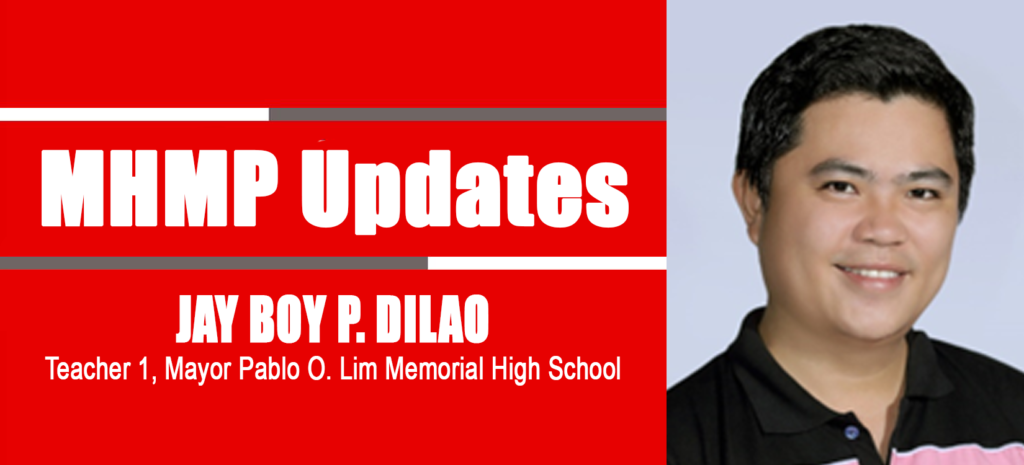
“EDUCATION is the most powerful weapon you could use to change the world.” This striking and famous line from one of South Africa’s most outstanding leaders, Nelson Mandela, has been a wide inspiration to educators and school administrators for a long time. It poses meaningful insights – empowerment, dedication, and passion for giving the best quality education among learners.
Despite the uncertainties brought about by the changing time, the importance of education remains constant. Neither storm nor any catastrophe can change the view of how important education has shaped the world; however, as the educational system keeps evolving, so with the various problems and challenges it faces. The spread of the coronavirus is one of the unexpected factors that tested us with education. It did not only transpire in an epidemic proportion but somewhat affected people in the worldwide spectrum. In this unprecedented scenario, schools worldwide shut their doors to learners resulting in over 1.2 billion students homeschooling. With this, the birth of e-learning (on digital platforms) has anchored educational institutions in bridging the knowledge gap – which then became a new norm in most communities to perpetuate intellectual awareness and values towards learners. It has pointed out the sheer idea that education is dynamic.
Furthermore, learning modalities have revolutionary changed throughout the pandemic. Mayor Pablo O. Lim Memorial High School (MPOLMHS), a rural secondary school in Valencia, Bohol, is one of those that deliberately imposed varied offline modalities. It includes embracing the Learner’s Management System’s utilization through the Point-to-point Network Access System or LMS-P2P.
LMS developed even before the global pandemic. To be exact, it was the year preceding the outbreak when the Department of Information and Communications Technology (DICT) endorsed the said learning integration through a project called Tech4Ed; an initiative commenced with high hopes to cover inclusivity in learning. This worthwhile project aims to provide learners and out-of-school youths with an alternative way to receive lessons without the aid of internet connectivity. To give an advantage to remote areas deprived of internet connection, LMS helps provide opportunities for students to catch up on lessons sans the worry of an internet signal. Furthermore, LMS is accessible through the Point-to-point network access system (P2P).
P2P is a type of offline connection that uses two communication endpoints. Every specific place in the barangay has networks. Most of them are in barangay halls. The said system has a central server that shall direct all the offline activities to specific access networks situated in the school and managed by the School ICT Coordinator.
In this context, the learners should be able to download their modules, activity sheets, and other learning materials with cellular phones, iPods, tablets, or laptops. It would help the learners save time, money, and energy as there is no need to report to their respective educational institutions to retrieve their printed modules. Instead, they downloaded the instructional materials to their designated barangay halls. Moreover, learning materials such as e-books and video lessons will be easy to access, allowing the students to have all the necessary knowledge and information relevant to their academics. They can still ask questions and clarifications to their subject teachers regarding their topics as chatrooms are made available and catered through offline connections. This fulfilling step ensures that the continuity of learning is there despite the distance and absence of physical teachers. Given this instance, learners have the utmost protection from possible Covid-related sickness. According to the learner-recipients, their apprehensions about traveling to their schools are gone, and they are comforted by still being able to access quality education amidst pandemic threats. This pronouncement is an implication for the welfare of each student’s well-being, especially in their mental and physical state.
On the other hand, teachers would have lesser responsibilities since they can opt out of print learning materials which will eventually cut out inks, bond papers, and other incidental expenses – also relevant to being environment-friendly. In lieu, these motivators can have ample time to focus on assessing learners’ work, assist them in other domains, and indulge in ad-hoc duties. If necessary, they can also provide extra learning materials to the learners to assure availability in a worst-case scenario. It is rather evident how teachers give the students an array of learning opportunities to learn and acquire knowledge even in a distant setup. Additionally, teachers bestow privilege among learners to be responsible for their learning, consequently promoting efficiency, effectiveness, and productivity as citizens in their respective communities.
Meanwhile, utilizing LMS-P2P will make the school administrators face lesser hassles in finding means to defray the expense of other printing materials. With the paperless learning mode, this integration poses a slighter expenditure on paraphernalia which will vow to huge savings on the school’s monetary expenses. Benefactors, from their perspective, are urged to contribute a lesser amount of financial aid since supplies are essential in the said learning integration. Asked about their side on this new setup, they were all head high about the school’s realization that it will make learners experience lesser burdens.
The plight of distance learning during the Covid-19 pandemic has become a massive challenge among learners, teachers, and administrators. It has indeed made the process topsy-turvy. MPOLMHS students have access to the innovation and resources of the teachers, school and division administrators, and benefactors. It is a promise that no one can ever evoke – that MPOLMS would never cease to find solutions to any predicament arising in the future and will always prioritize the well-being of the learners.
MPOLMHS is fortunate enough to make it the first-ever recipient of the LMS-P2P. Currently, some schools are already in arrangements for this offline learning modality and have given their fair share of LMS-P2P’s advantage to remote schools. MPOLMHS is beyond grateful for successfully implementing this and is willing to be more open to possible modifications to improve the utilization of the said innovation.

